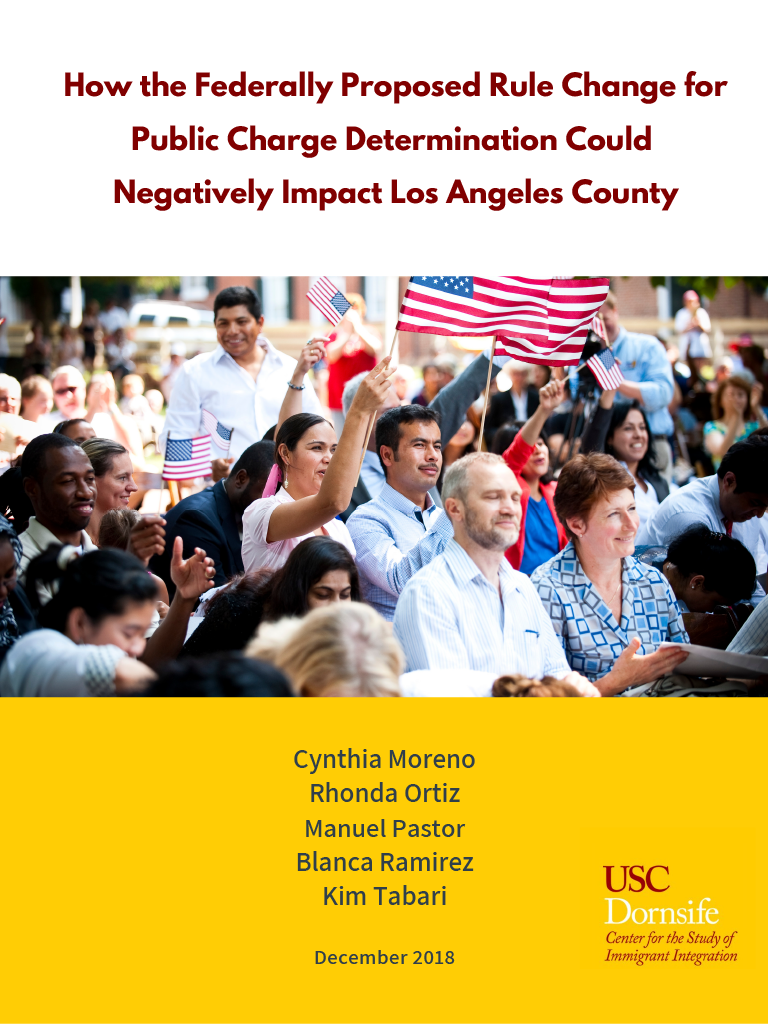
December 4, 2018
By Cynthia Moreno, Rhonda Ortiz, Manuel Pastor, Blanca Ramirez, and Kim Tabari
Please note: reports dated earlier than June 2020 were published under our previous names: the USC Program for Environmental and Regional Equity (PERE) or the USC Center for the Study of Immigrant Integration (CSII).
On October 10, 2018, the U.S. Department of Homeland Security released a proposal to implement an expansion of who could be deemed a public charge and what benefits could be considered in a public charge determination. This change is important because a public charge determination has long been used in consideration of immigrants’ ability to enter the U.S. or to change their status. According to the current United States Citizenship and Immigration Services definition, “in determining inadmissibility to the U.S., public charge is defined as an individual who is likely to become primarily dependent on the government for subsistence, as demonstrated by either the receipt of public cash assistance for income maintenance, or institutionalization for long-term care at government expense.”
The policy change proposed by the administration, would greatly expand how a public charge is defined by more closely scrutinizing immigrant use of life-saving public benefits and adding additional non-cash benefit programs, such as: non-emergency Medicaid; Medicare Part D low income subsidy; Supplemental Nutrition Assistance Program (SNAP); and rental/housing assistance. These changes will have expansive impacts on immigrants, their families, and communities they live in across Los Angeles County and the nation.
Research analysis by Center for the Study of Immigrant Integration (CSII) details the potential impacts and implications of the proposed changes to the public charge definition to the residents in Los Angeles County. Based on a review of existing literature and data from a customized dataset that better indicates which residents are lawful permanent residents (LPRs), we share three main findings:
- The proposed change is likely to have a significant negative impact on mixed-status families, which include U.S.-born children to immigrant parents.
- The change could erode trust of public agencies and services, leading to a decline in crime reporting, threatening public safety for all L.A. County residents.
- The change could lead to a decline in usage and enrollment to health care and other L.A. County services, creating challenges for immigrants and U.S.-born alike.



